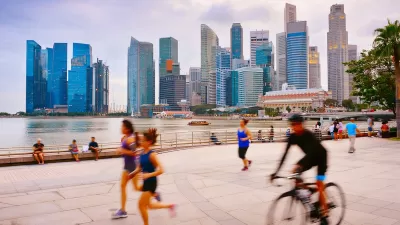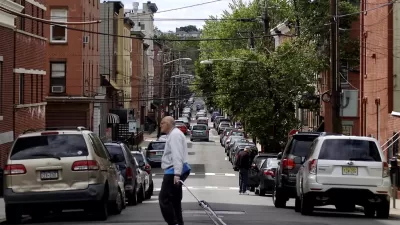Singapore, Masdar, Songdo City- each of these municipalities are creating "systems of systems", integrating their data from water, electrity, waste, etc. to make smarter decisions.
The Economist takes a look at the growing number of experiments in creating synergistic computing systems for cities:
"The best-known smart city is Masdar, a brand-new development in Abu Dhabi that recently welcomed its first residents and will eventually become home to 40,000 people. It is being built entirely on a raised platform, which makes maintenance and the installation of new gear much easier. Below the platform sits the smart infrastructure, including water pipes with sensors and a fibre-optic network. Above it is to be a showcase for all kinds of green technology: energy-efficient buildings, small pods that will zoom around on paths (no cars will be allowed) and systems that catch dew as well as rainwater.
Yet experts see Masdar mostly as a property project: hardware in search of a purpose."
FULL STORY: Living on a platform

Alabama: Trump Terminates Settlements for Black Communities Harmed By Raw Sewage
Trump deemed the landmark civil rights agreement “illegal DEI and environmental justice policy.”

Planetizen Federal Action Tracker
A weekly monitor of how Trump’s orders and actions are impacting planners and planning in America.

The 120 Year Old Tiny Home Villages That Sheltered San Francisco’s Earthquake Refugees
More than a century ago, San Francisco mobilized to house thousands of residents displaced by the 1906 earthquake. Could their strategy offer a model for the present?

Ken Jennings Launches Transit Web Series
The Jeopardy champ wants you to ride public transit.

BLM To Rescind Public Lands Rule
The change will downgrade conservation, once again putting federal land at risk for mining and other extractive uses.

Indy Neighborhood Group Builds Temporary Multi-Use Path
Community members, aided in part by funding from the city, repurposed a vehicle lane to create a protected bike and pedestrian path for the summer season.
Urban Design for Planners 1: Software Tools
This six-course series explores essential urban design concepts using open source software and equips planners with the tools they need to participate fully in the urban design process.
Planning for Universal Design
Learn the tools for implementing Universal Design in planning regulations.
Clanton & Associates, Inc.
Jessamine County Fiscal Court
Institute for Housing and Urban Development Studies (IHS)
City of Grandview
Harvard GSD Executive Education
Toledo-Lucas County Plan Commissions
Salt Lake City
NYU Wagner Graduate School of Public Service





























